Halim Flowers
"I'm not a life sentence. I’m free and I’m rich, and I’m wealthy, and I’m healthy, and I’m loved and I’m loving.”
This week on Small Talk, we sat down with Halim Flowers.
A man, that through pain, found his purpose; a purpose to inspire, uplift, educate, and revolutionize love.
After being sentenced to two life sentences in prison, and spending 22 years behind bars, Halim now uses his writing, motivational and empowering speeches, personal fitness, and love of art; Halim leads people in the direction of revolutionary change.
Thug Life;
“The world can push you, you’ve just gotta push back sometimes.”
Halim’s early life was like many others, growing up in a suburban community with his family. What caused his world to be turned upside down, were the unfortunate actions of his father, becoming addicted to crack cocaine. Once his father was out of the picture, he and his mom had to make the move into the inner city of D.C.
“My upbringing, my environment, and my household were pretty positive. My first dramatic experience was my dad getting addicted to crack cocaine. Before that, I lived in a suburban neighborhood, in a good community with two parents. But when my dad got addicted, it took him out of the picture and we moved from our home, into inner-city DC.”
During the late ’80s and early ’90s, Washington DC had the highest murder rate in the country, per capita. And for a 20-25-year span, D.C had the highest incarceration rate of any city in the world.
 With drugs, gun violence, and poverty so prominent, Halim was submerged into a dominantly negative environment.
With drugs, gun violence, and poverty so prominent, Halim was submerged into a dominantly negative environment.
“But there was love there too.
We had elders that disciplined us when we were out of pocket, and we had strong mothers. Most of our fathers were missing, but we had very strong, loving mothers, who held us down and held us up.”
Although DC was statistically and realistically violent and destructive, Halim emphasizes the dichotomy and doesn’t wish to paint a picture that excludes the love that simultaneously surrounded him as well.
At age 16, Halim was sent to prison, faced with two life sentences, and labeled a super predator. Yet, he relentlessly challenged this label and persevered towards his freedom.
“But for me, it all goes back to my mother and the other women that were there throughout my life.”

As quoted in one of Halim’s several books that were published while he was incarcerated, “We live in a world that convinced you to be everyone except yourself.” Discovering what it truly meant to be him, Halim began to expect more from himself than what society expected from him.
“As a child with these life sentences, looking at the legal work that says ‘The United States of America vs. Halim Flowers’, I felt as if the world had given up on me, like the world discarded me, so undoubtedly I went through some phases of anger.”
The Emmy award-winning documentary, ‘Thug Life in DC’, captured Halim’s journey into prison. Due to the exposure following the release of the documentary, many people, especially women, reached out to young Halim.
 “There was one lady that wrote to me, and she had said that she saw something in me, a light in my eyes, and that my spirit just needed to be poured into.”
“There was one lady that wrote to me, and she had said that she saw something in me, a light in my eyes, and that my spirit just needed to be poured into.”
With the influence of caring souls supporting him from outside of his cell, Halim’s spark was ignited, and he began to believe that perhaps there was more to his fate than a piece of paper declaring life sentences.
“I wrote to her 20 years later and asked her why she had written to me. And she told me, ‘I saw something in your eyes.’ It was women, even the women that worked inside of the institution, they saw something inside of me that I couldn’t see inside of myself at the time because I was trying to be like everyone else.”
With everyone in his immediate environment playing the role of a thug and a drug dealer, Halim was swayed to mirror these roles. But upon entering prison, even with the tough and violent culture held within the walls, Halim says that the kindness of women and motherly ways in which compassion was expressed towards him, gave him a sense of empowerment and hope.
“One nurse would give me extra food, a correction officer lady would give me different novels to read, and my mother’s love stayed unconditional. So, when you have that type of love being poured into you, even if the world tells you that you’re a menace to society, or that you’re a superpredator, and that you’re never going home, I felt in power. I knew I couldn’t just succumb to a man-made rule, a man-made sentence, a man-made fate."
Halim Flowers believed in his core that there was a higher power bringing all of this love into his life.
“Even when I was in prison, people would ask me when I’d be going home, and I’d tell them my sentence was for life. They’d be like, ‘you don’t act like you’re a life sentence’; and I would tell them, 'That's because I'm not a life sentence. I’m free and I’m rich, and I’m wealthy, and I’m healthy, and I’m loved, and I'm loving.”
Being extremely, even overly optimistic; Halim had an intuitive hunch that something great was destined for him. By the time Halim turned 22, six years after he entered prison, he was ‘convinced’, that there were great things ahead.

As we become all that we desire, and begin to embody all that we are; people, places, and things, start to fall into a synchronized rhythm. Some people refer to this as luck, to others it may be recognized as grace or coincidences, but what Halim and TrooMe both know, is that it is the universe reflecting back to us who we are.
“Once I became convinced of that universal truth, I knew that no man-made law was more powerful than a universal law. I knew that I now had a responsibility to be loving, to be fearless, to be kind and compassionate; to be forgiving, and to invest in others.”
With this newfound knowledge, Halim understood that it was going to take a lot of giving back for the universe to support him in breaking free from the chains of his two life sentences. It takes unconditional giving to receive unconditional receiving. What we give we get; what we sew we reap.

“You need to get to a point of understanding, in which you’re no longer acting in a way to get out of your unwanted circumstances, but you’re doing these things just to be good. You don’t want to do things with an expected outcome in mind, you want to do things because it feels good to be good; so just be good.”
All You Need is Love;
Many people would’ve been drawn towards anger and revenge if they were in Halim's shoes, yet Halim chose and became love. In a world where, as Jesse Israel quoted in our interview with him, ‘Love is a choice’, many people continue to choose rage and resentment.
With love always being an option for us to choose, it seems unimaginable that anything else would be preferred.
“I definitely believe that everybody has the opportunity to access love. Specifically love from yourself.”
In a world where people are heavily influenced by the media, whether it be by radio, TV, social media, the internet, movies, or podcasts; the majority of things that get ratings and momentum, sensationalize negativity.
“People are not being developed to think critically about their diet. When I talk about diet, I’m not talking about what we eat, I’m talking about sight, sound, and feeling; the things that we put into our soul.”
If we were to look at a lot of the media today, we would experience an influx of harsh language, cruel behaviour, and saddening stories.
In consumer psychology, we learn that this is purposeful; the media is well aware that negativity draws attention.

“People are being bombarded with so much negativity, and on top of that, people are also being suffocated with this monolithic idea of beauty and success. An idea and a standard that oftentimes isn’t even in alignment with their genetics or their situation.”
Society has created a ‘not enough’ culture.
A culture in which our lips aren’t big enough, our home isn’t big enough, our butts aren’t big enough, and our bank accounts aren’t big enough. A culture in which our skin isn’t light enough, our skin isn’t dark enough, our body isn’t thin enough, our body isn’t curvy enough, and we are never enough.
“You end up existing in this state of discontent and insatiability.”
This discontentment with self, leads to self-hate and self-doubt.
Within all of the media that is offered to us, lies very little promotion and encouragement towards the love of one’s self and one’s circumstances.
“When you have that type of culture and that type of negative bombardment on the human brain and the human spirit, especially from such a young age, it leads to everything other than peace and love.”
People have a hard time accessing love and making love their choice because, ‘it’s not in their diet’, says Halim. From who they idolize on social media, to what they watch, is literally feeding their soul empty calories. They are eating up a false sense of reality and neglecting their own innate truth, a truth that is love in and of itself.
Cleansing the Diet;
“I think cleansing the diet comes down to accessing people, places, and things, that’s conducive to critical thinking. As a kid, I was never really thinking for myself. I was being someone else because I was never encouraged to critically look at the outcomes of my actions. It wasn’t until I was an adult, that I had mentors recommending me books and movies that would improve my diet.”
When we have mentors and loving individuals guiding us in the right direction towards the proper people, places, and things; we come to find that self-love, and in Halim’s words, ‘Revolutionary and Radical love’, has been present all along.
“For me, it’s a love revolution; so, I’m doing all that I can to talk about love, even if that’s all I can do.”
When we come from a place of love, we can’t help but create a ripple effect of love in the universe.

“I’m talking to you about love, and then you talk about love to someone else, and it gets more and more people talking about love. Without even realizing it, people start loving themselves, and embodying love.”
Halim is an expert at expressing his emotions and his talents in creative forms that can be appreciated and experienced, rather than acts of retaliation and vengeance. In doing so, he has crafted a personal outlet in which any negative emotions can be transformed from pain, into purpose.
These spaces that we create for ourselves, give us not only a place to express but an environment in which we feel safe. Whether it be reserving time to journal, an afternoon set aside to write or draw, or an evening of non-judgmental creative expression; these moments in time allow us to conceptualize the pain or confusion that we may be feeling.
“Through creative expression, people come to realize that a lot of their ‘pain’, outside of physical pain, is self-created pain.”
We are taught to feel that because we may not have what another has, whether it be economic or genetic, we are, therefore ‘less than’.
 “I realized, only when everything was stripped from me, that I was happy without things. The people I was trying to impress, didn’t really care about me. And the one person who really did care about me, my mother, didn’t care what I wore or which car I drove, or how much I was making; she just wanted me to be there.”
“I realized, only when everything was stripped from me, that I was happy without things. The people I was trying to impress, didn’t really care about me. And the one person who really did care about me, my mother, didn’t care what I wore or which car I drove, or how much I was making; she just wanted me to be there.”
The most dangerous thing that we can do, is compare. When we compare, we neglect all that we are, and never experience true satisfaction in who we are.
“We believe that if we were to have more material things, our status and or happiness would be elevated; so, we end up basing our lives off of societally imposed judgments. When you feed into that judgment, it leads to self-created pain, and the majority of the pain that we feel is crafted in our own internal eco-systems.”
Wanting things and striving towards the attainment of such things, isn’t where the problem resides. The problem with always wanting more than what we have is that we neglect the present moment and who we are in the said moment. The present moment is the only moment in which happiness and health reside, and if neglected, one’s life will be lived desensitized to the magic that’s in the now.
“I want nice things, but I don’t want them to the point that if I don’t have them, I feel pain. My purpose is, first and foremost, to love myself, and from that place of self-love, my power can then emanate.”
Our purpose as human beings is to be. It’s funny that we’re called human beings, yet we’re so busy doing. If we were to slow down, calm the mental chatter, and move from a place of authentic self-expression and self-love, the majority of the pain that we feel would fall away, because, in reality, it was never really there.
“People have to understand that a lot of pain is self-created, and they’re going to have to get very creative with themselves about finding ways to turn that pain into their purpose."
Stripping ourselves of the idea that happiness can be attained externally, is the first step in finding one’s purpose. When we move from a place of inward contentment and inward fulfillment, we come to find that each step thereon is in fact in the right direction.
Positive Influence;
“I feel like it’s my duty as a human being, to make the world more positive, even if I know the world will never be 100% positive.”
Halim uses his artistic talents and self-expression to promote change, revolution, and justice. In Halim’s opinion, this promotion of positivity is not only important but is necessary.

“I love positivity, and I love positive people; It doesn’t matter what religion they are, what gender, or where they come from. I just love optimistic people, it feels good being around them.”
Sometimes life gets us down, it’s an inescapable reality that we end coming face to face with. Yet, in these times of sadness and despair, we are met with people who lift us from our dark places; people who change our outlook on our situations and help us in moving forwards.
“I don’t care too much for drinking and partying, but what I am addicted to, is positive people and learning.”
We need to experience the negative to appreciate the positive.
Yet, there's a difference between living in negativity, and experiencing negative circumstances. As Thich Nhat Hanh quoted, “When suffering comes up, we have to be present for it. We shouldn’t run away from it or cover it up with consumption, distraction, or diversion. We should simply recognize it and embrace it.”
– Excerpt from ‘The Art of Living’, by Thich Nhat Hahn.
“The work that I do, and that I love to be, helps people go through those negative cycles consciously, with more awareness and with more compassion towards themselves.”
The pain will come and it will go, just as each breath is followed by an out-breath. But, to be aware of pain and suffering, is to choose to no longer be controlled by it. When we are aware, we can move forwards, from a place of disempowerment to empowerment.
Freedom;
“In a society where everyone knows the price of everything, but no one knows the value, to be free is to choose what to place value on.”
Throughout history, black men and women have been subject to slavery, mistreatment, and brutality. The opposite of freedom.
Even today, although less visible to the human eye, injustice and inequality continue to be a widespread reality.
“People support law and order and mass incarceration because it's an 80 billion dollar a year industry. It’s not about public safety, because if it were, we would be putting in the research towards why people are making the choice to commit crimes.”
The 13th amendment represents a form of ‘freedom’, yet it also represents mass incarceration.
 “Freedom to me means a complete liberation from inhumane culture. America today has denied not only people of colour, but its own women, many civil and social liberties. As an individual, freedom means being fearless; but collectively, freedom to me is complete liberation from the commodification of people suffering.”
“Freedom to me means a complete liberation from inhumane culture. America today has denied not only people of colour, but its own women, many civil and social liberties. As an individual, freedom means being fearless; but collectively, freedom to me is complete liberation from the commodification of people suffering.”
When we look at slavery and incarceration, although oftentimes the underlying motivation may be race, the real reason is commercialism; people being enslaved for profit.
“When you want something to continue, you don’t address the causes, you just remove individuals. New generations continue to go into the system, as judges and government officials continue to make money because the causes are never addressed.”
Where people profit from the restricted freedom of others, is where freedom no longer lies. This discussion only scrapes the surface, the underlying reality is a concoction of hundreds of years of injustice and a justice system that goes against its name.
The Future of Justice;
 “I would like to see all prisons and jails in America completely abolished. In its place, we need to have spaces where the people who caused harm to others through criminal offences, can go to be healed and restored. That way, they can return to their communities and help others who are going through similar circumstances and can repair the harm to the one who they offended.”
“I would like to see all prisons and jails in America completely abolished. In its place, we need to have spaces where the people who caused harm to others through criminal offences, can go to be healed and restored. That way, they can return to their communities and help others who are going through similar circumstances and can repair the harm to the one who they offended.”
Holistic, therapeutic, and humane approaches are the only chance we have in moving forwards. Something cannot be healed if it is not given proper medicine and care. Therefore, society and the people in it, have no chance at healing, if care and restorative justice is not offered.
“We have the tools; we just have to be more forceful and more demanding. America’s cocky, we want to be the best. So, if we can be the best at bombing people, and if we can be the best at generating GDP and making hip hop; then we can be the best at criminal justice, healing and helping people.”
100% True;
We asked Halim what he knows 100% to be true, his answer;
 “We attract what we are, and not what we want.”
“We attract what we are, and not what we want.”
At TrooMe, we believe that freedom and justice go hand in hand with healing and care. For the justice system to honour its name, and for society to embody true freedom, there needs to be a push in the right direction, a push in the direction of redemption and righteousness.
May we follow in Halim Flower's footsteps, expressing our own innate talents and passions in the form of love; choosing positivity, becoming what we wish to attract, and standing for something greater than ourselves.
Follow Halim's Love Revolution
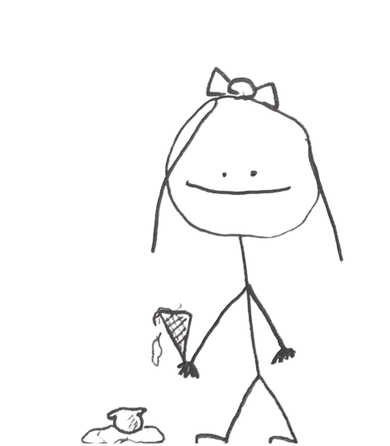
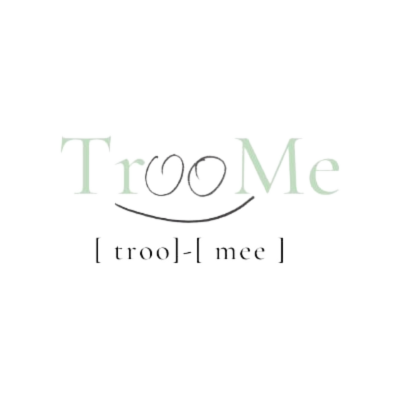
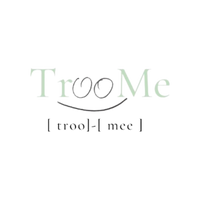

Leave a comment